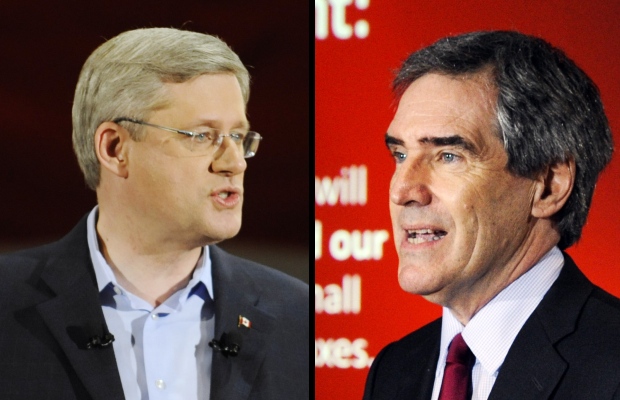Fleishman-Hillard, one of the world’s largest public relations agencies, has offices across Canada and employes experts in public affairs, social media and communications.
We asked some of the agency’s experts to give politcal leaders some advice heading into to Tuesday’s debate.
Here it is:
Stephen Harper
The Conservative Prime Minister should:
Appear relaxed and calm under the attack of the other leaders
Ensure that Ignatieff does not come across more prime ministerial than he does
Highlight his record on the economy
Display compassion for Canadians hard hit by the economic downturn
Michael Ignatieff
The Liberal leader should:
Appear down to earth by speaking in language that viewers can relate to
Kill the coalition attack from Harper in one very short memorable and unequivocal sound bite
Pounce on this latest scandal surrounding the auditor general’s G8/G20 review
Jack Layton
The NDP leader should:
Be energetic, passionate and lively to counter the “loss of momentum” message the Liberals are trying to capitalize on.
Gilles Duceppe
The Bloc Quebecois leader should:
Try speaking to all Canadians not just those in Quebec who get to vote for his party. The Bloc has far more power in a minority parliament than a majority so landing some damaging blows to Harper may ensure his party is a power broker in the next parliament
General advice to all candidates:
Act prime ministerial. Each candidate needs to demonstrate to voters that he or she is a competent leader who can handle tough challenges and represent them on the national and international stage. Candidates should take command of the podium and interject in a way that demonstrates authority and control. If a candidate acts like the leader of the opposition, then voters will see them that way.
Be your best authentic self. Viewers can see through posturing. Trying too hard to be something you’re not seldom works. Leaders need to be true to their own brands and personalities, but be as engaged as possible.
Reveal yourself. Let the viewer see who you are. Use personal stories, anecdotes of people you’ve met on the campaign, or who have touched your lives. This is about you and Canadians need to connect with you.
Avoid a blunder. Delivering a political knockout punch is rarely accidental and avoiding one is possible. The key is proper preparation and practice. Candidates need to know their key messages and run realistic simulations with their staff. Think like your opponent and learn to bob and weave when you see that knockout punch coming.
It’s all about appearances. Mind your body language, dress the part and wear the right make-up. Using the wrong shade of foundation can make a candidate look terminally ill, and this can have a devastating effect on the audience.
Slow down. Most speeches and debates are too fast. Slow down your speech, shorten your sentences, speak clearly, and repeat, repeat, repeat (in threes) what you stand for.








Comments